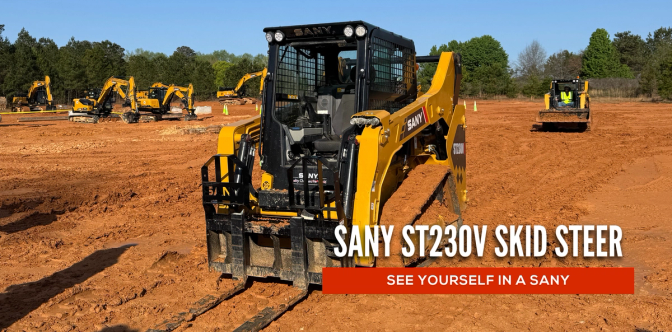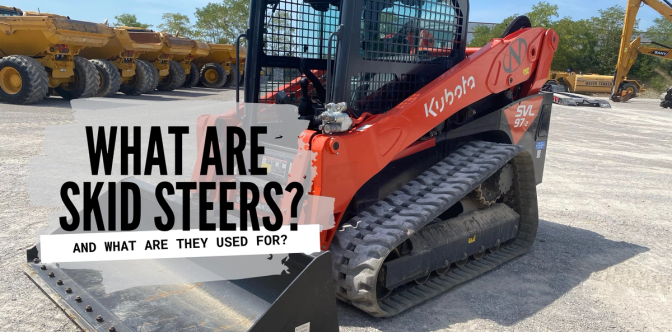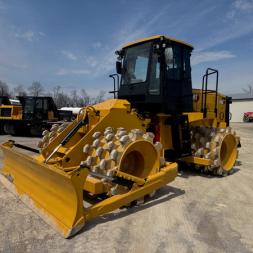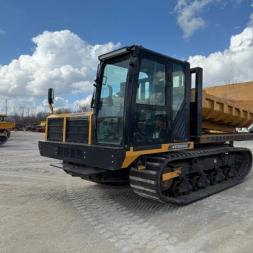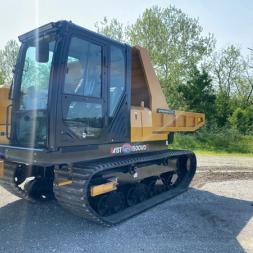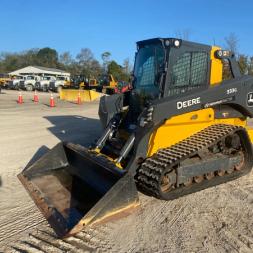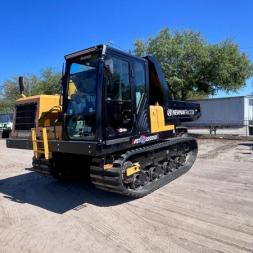Financing Heavy Equipment
Pros of Financing
- Once you've paid off that loan, you own that beast of a machine. It's yours to use, loan out, or even sell when you're ready for an upgrade.
- Uncle Sam likes it when you invest in your business. You can snag a tax break for things like depreciation and the interest you're paying on that loan.
- Have you got some old equipment lying around? Perfect. You can often trade it in and use its value towards your down payment. It’s a sweet way to turn yesterday’s workhorse into today’s savings, and it can take the sting out of that initial cash investment, like trading in your old car.
- Want to slap on a new paint job? Go for it. Want to modify the machine to optimize performance for a project? No one's stopping you. When you finance, you get to make all the calls on how the equipment gets used, with no one looking over your shoulder.
Cons of Financing
- Cash. Here's the hitch—you often need to put some money down upfront. And let's be honest, not everyone has a pile of cash lying around.
- The minute your equipment starts working, it begins to lose value. And if newer, better models roll out, yours could feel like yesterday’s news. That's the risk you take when you own it.
- Since you aim to own the equipment, your monthly payments can be higher than renting or leasing. Bigger cost now, but it could pay off later.
Leasing Heavy Equipment
Pros of Leasing
- One of the coolest things about leasing is that you’re not stuck with old tech. When the lease is up, you can return the keys if something better is out there. That risk of your equipment turning into a pricey paperweight? Not on you.
- Many leases roll up with a sweet little perk of zero down payments. That’s right, you could get the equipment humming on your site without dropping a hefty sum upfront.
- Just like financing, leasing comes with tax benefits. Those lease payments? They often can be written off as a business expense. But be sure to talk to your accountant about this because we aren’t CPAs.
- When your lease is up, you’re in the driver’s seat. Love the equipment? Buy it. Ready for a change? Hand it back. Or maybe you just want to keep on leasing. It’s like a choose-your-own-adventure book but for heavy equipment.
Cons of Leasing
- It’s a bit like renting a condo. You pay every month, but in the end, you don’t own it. If you’re looking to build equity in equipment, leasing may feel like running in place.
- Here’s the kicker—if you keep leasing, especially if you choose to extend, you might end up paying more than if you’d bought the equipment in the first place.
Renting Heavy Equipment
Pros of Renting
- Got a short-term project? Renting’s a great option. You get the equipment you need for the time you need it without the ties of long-term deals. It's like borrowing a neighbor’s smoker—no long-term commitment, just the pleasure of getting the job done right.
- If something breaks down, you’re not necessarily on the hook for it. The rental company handles some maintenance and repairs so that you can focus on the work, not the wrench. But if you’re at fault for a repair, you’ll need to cough up the cash to pay for it.
- The beauty of renting is that rental companies often stock the latest models. So you can have the newest, shiniest equipment at your job site, giving you a taste of the high life without the investment.
Cons of Renting
- Renting can be more expensive than leasing or financing. You’re paying for the convenience. Think of it as grabbing takeout instead of cooking at home—it adds up.
- Like leasing, when you rent, you’re not building equity towards anything. Once the rental period is up, you return the machine with nothing to show in your asset column.
- Since you’re not the only one renting, you might find the exact model you want isn’t available. It’s like heading out to your favorite fishing spot and finding all the best boats are already taken—you just have to work with what’s left or wait for the next best thing to come along.
Comparing Leasing, Renting, and Financing
| Aspect | Financing | Leasing | Renting |
|---|---|---|---|
| Ownership | Yes, after payments are complete | No, but there’s an option to buy | No, equipment must be returned |
| Down Payment | Often required | Sometimes required | A deposit might be needed |
| Monthly Payments | Higher, since you’re buying to own | Lower than financing, with flexibility | Varies, can be higher for short-term use |
| Tax Deduction | Deductions for depreciation and interest | Lease payments can often be expensed | Rental fees can often be expensed |
| Maintenance Costs | Your responsibility | Typically covered by the lessor | Covered by the rental company |
| Flexibility | Trade-in or sell options available | Return, buy, or re-lease options at term-end | High, easy to swap equipment |
| Cash Flow | Impacted by high initial investment | Less strain on cash flow due to lower initial costs | Minimal initial outlay |
| Balance Sheet | Asset and liability increase | Liability without increasing assets | Off-balance-sheet transaction |
| Commitment Level | High, long-term commitment | Medium, fixed lease term | Low, as-needed basis |
How do you choose?
- Financing is like getting a pet. It's a long-term relationship. You're in it for the long haul, ready to take on the responsibilities for the reward of ownership. Best suited when you want to invest in equipment that you’ll use for a long time and are okay with a larger initial financial commitment.
- Leasing is more like a lease on a condo. You don't own it, but you get all the benefits of living there and can buy it when your lease is up. This is a good middle ground if you want the latest equipment and more flexibility without the full commitment of owning.
- Renting is the most flexible. It’s like a hotel stay; you use the amenities while there but don’t worry about the upkeep once you check out. Perfect for short-term needs, one-off projects, or when you’re in a pinch and need something quickly without a dent in your cash flow. But if you damage the room, you must pay for repairs.

